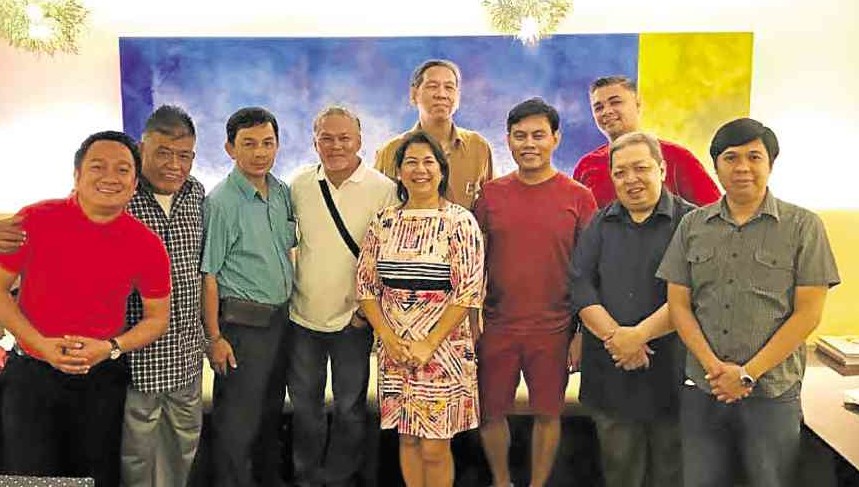NCCinema eyes more grants for film in 2018

National Commission on Cinema members (from left) Hobart Savior, Ed Palmos, Art Tibaldo, Archi Adamos, Rosanni Sarile, Teddy Co, Ian Casocot, Jag Garcia, Vincent Nebrida and Patrick Campos
The National Committee on Cinema (NCCinema) has approved the inclusion of new grants for film in its project proposal for 2018.
These included a grant for film marketing and the New Media/Inter-arts Collaboration Plan for projects outside the traditional film medium, among other things.
The grant for “film production” included the previous year had also been changed to “film post-production grant.”
Aside from the new grants, a staple in the NCCinema’s proposal every year is the Cinemas to the Region Plan, which gives funds to film festivals organized in the provinces.
Other grants included were for script development, film restoration, research and investigation in cinematic study, among others.
Article continues after this advertisementThe NCCinema proposal detailing plans for next year was drafted by the 13-man committee at a recent two-day planning session.
Article continues after this advertisementThe event was also attended by members of the Subcommission on the Arts (SCA)—one of 19 national committees of the National Commission for Culture and the Arts (NCCA), which is mandated to create policies, as well as promote and implement programs connected to the arts.
“Everything we are doing is geared toward capacity and audience building,” explained NCCinema vice chair Jag Garcia.
Through grants, Garcia said the NCCinema hoped to support some of the filmmakers who would be joining the 19 film festivals in different areas of the country, including the 9-year-old NCCinema-sponsored Cinema Rehiyon.
“I remember when I was new in the NCCinema nine years ago, the consensus was to support independent cinema by giving grants. At that time, the cost of production was going up but the budget given to filmmakers was not,” Garcia told the Inquirer. “There was re-channeling, and we found our niche in Cinema Rehiyon. After that, other grant-giving bodies were created, and more producers took the risk.”
Garcia also said that in 2018, the NCCinema hoped to bring Cinema Rehiyon back to the Cultural Center of the Philippines (CCP), where it was first held 10 years ago.
This year, the festival will be held in Nabunturan, Compostela Valley from Aug. 22 to 27.
Garcia, who represents the education sector, said: “I’m most interested in capacity-building projects, like teacher trainings, workshops, and grassroot development programs… [that] have the longest and lasting effects. We believe that if you can’t pay for the projects, then at least pay for ways for the projects to be shown and reach more people.”
The NCCinema project proposal, written by executive committee member Ian Casocot, was later presented by colleague Hobart Savior to all the members of the SCA.
Savior, who is Mindanao’s representative in the committee, said he was most excited about the NCCinema’s plan to develop programs for a regional audience.
Savior said he also hoped that, through the NCCinema, film festivals would be able to make independent cinema “truly and sincerely accessible” to people. He explained that “like ballet, it has also become more exclusive. We should support projects that would bring the movies to the barangays, or bring animation to the kids in covered courts in far-flung areas.”
A professor and festival director based in Cagayan de Oro City, Savior said he was also concerned with the writing aspect of film. “We have a lot of art producers and creators, but we have no one to document our creative process. We need to promote art writing in general. We do have a number of film critics, but even that area has remained underdeveloped,” he pointed out.